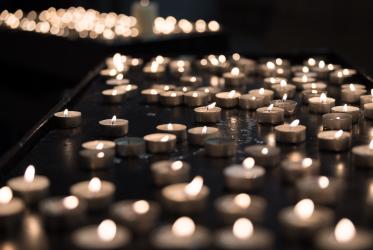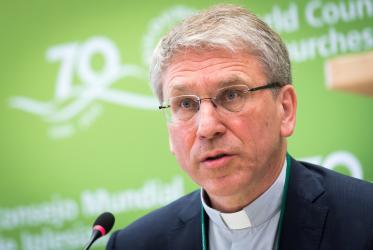When Rev. Frank Chikane was leading the South African Council of Churches in calling out injustices of the apartheid system, their work did not stop even after the council’s office building was bombed to the ground in 1980s. Moderating the Commission of the Churches on International Affairs of the World Council of Churches (WCC) since 2016, Rev. Chikane has been engaged in addressing injustices in many parts of the world. WCC Communication asked Rev. Chikane to look back at his term at the commission and the ongoing calling of churches to address injustices in the world today.
13 January 2022




